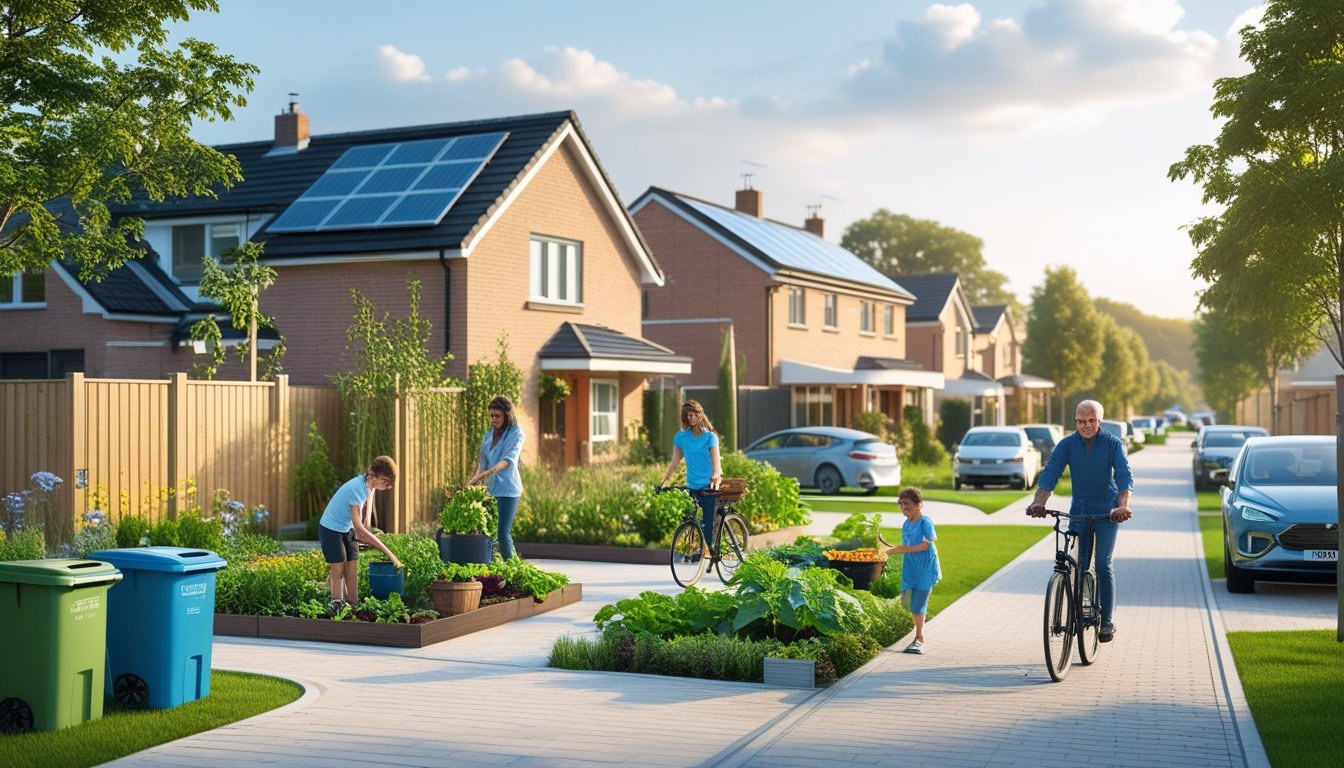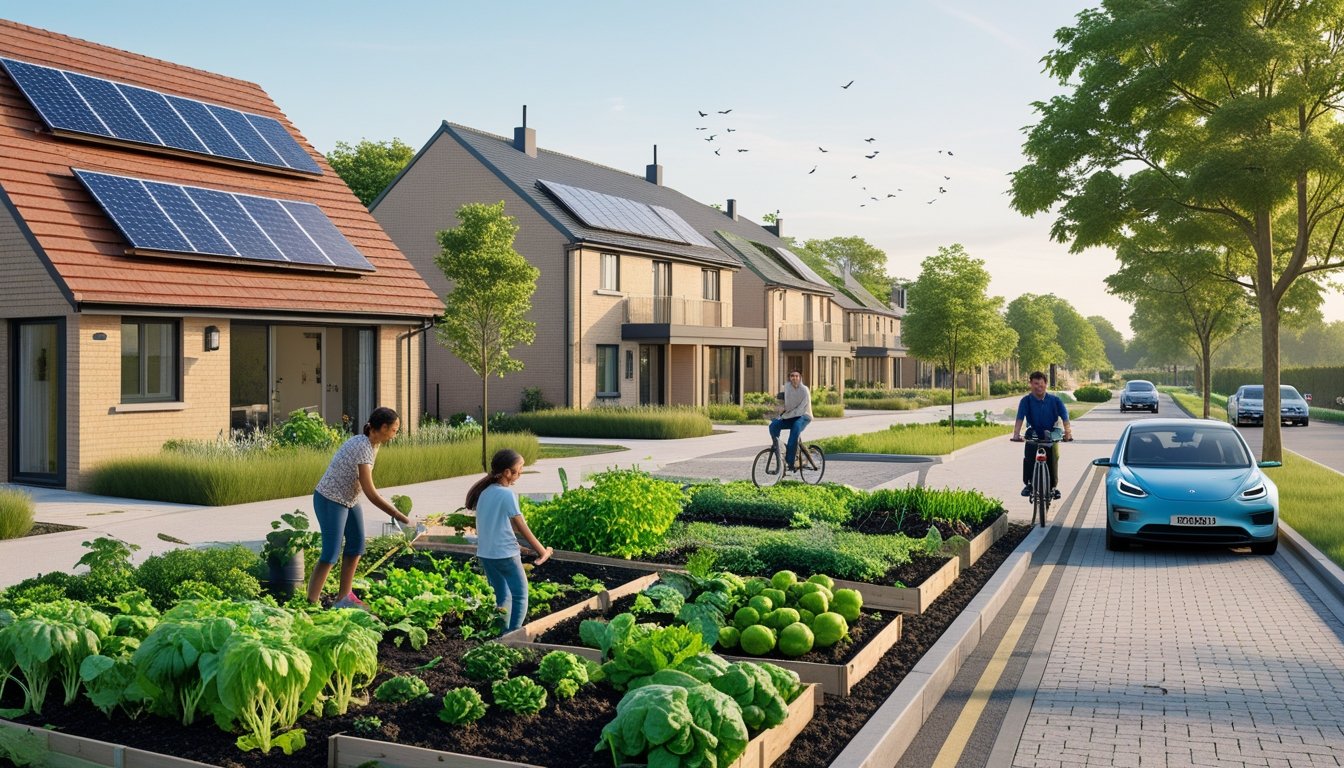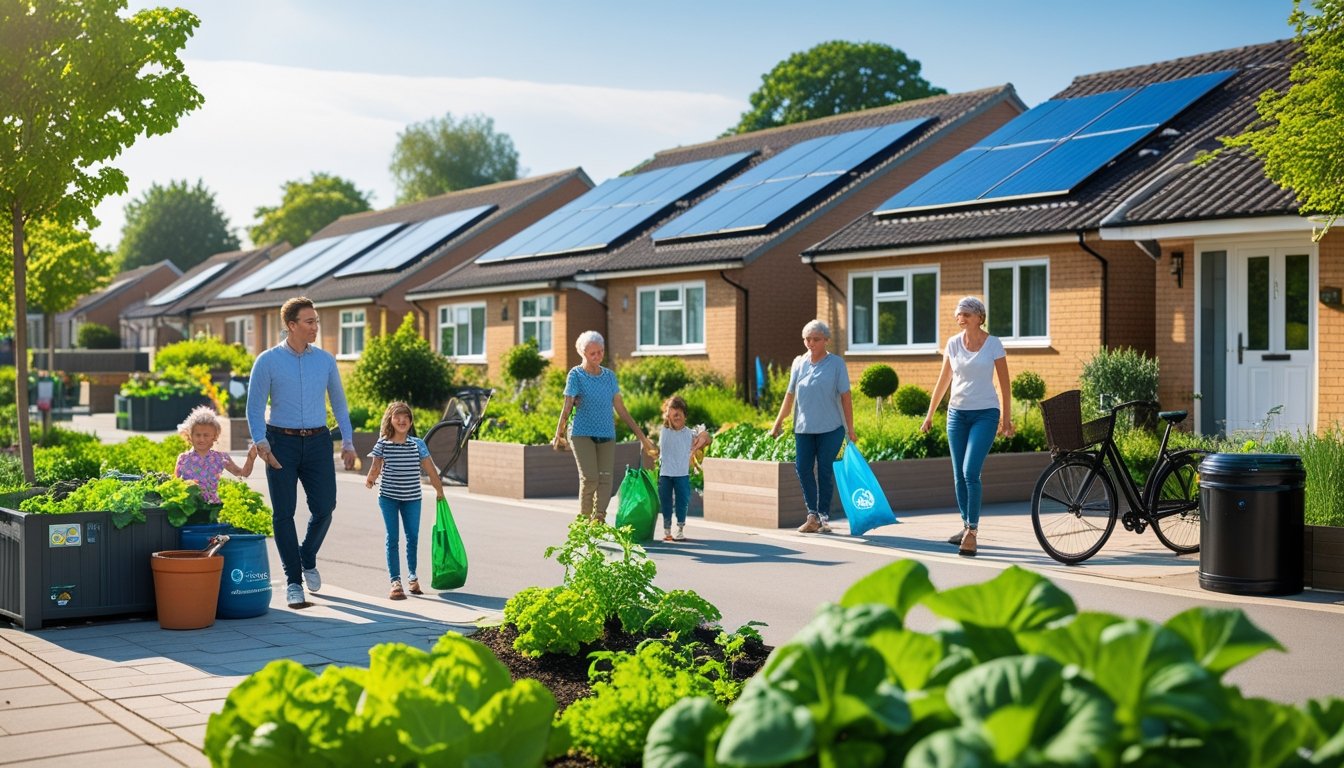Late updated: 24 Aug 2025 09:08
Written by: Eleanor Hartman
Sustainable Urban Living Tips For UK Households: A Practical Guide
Living sustainably in an urban environment such as the UK can sometimes seem like a daunting task. With crowded cities and busy lifestyles, it might feel challenging to incorporate eco-friendly habits into our daily routines. Yet, adopting simple sustainable living tips can significantly reduce our carbon footprint and create a more positive impact on the environment.

As city dwellers, we have unique opportunities to implement sustainable changes, from managing household waste more efficiently to using renewable energy sources like solar panels. By choosing sustainable habits, we not only contribute to a healthier planet but also improve our quality of life. We'll explore various methods of reducing waste, conserving energy, and making more informed choices about the products we use and the impact they have on our environment.
A sustainable lifestyle is not just about grand gestures but also about the small, manageable steps we can take in our homes. From recycling more effectively to adopting green travel options, these changes offer an accessible entry point into sustainable living. Let's embark on this journey towards a greener future, one step at a time, and discover how these practices can transform our households and communities.
Key Takeaways
- Simple changes can lead to significant environmental impact.
- Implementing renewable energy sources is crucial for sustainability.
- Small, manageable habits make sustainable living accessible.
Essential Strategies for Sustainable Urban Living in the UK

In the UK, we can make a substantial impact on urban sustainability through improved energy efficiency, embracing renewable energy, and making eco-conscious everyday decisions. By focusing on these areas, households can reduce carbon emissions, lower energy bills, and contribute positively to the fight against climate change.
Improving Energy Efficiency and Reducing Energy Bills
One of the most effective strategies for households is enhancing energy efficiency. This can be achieved by installing loft insulation, which significantly reduces heat loss. The Energy Saving Trust provides guidance on effective insulation methods that can lower energy bills.
Installing energy-efficient appliances and utilising LED lighting also contribute to decreased energy consumption. We should aim to understand our energy usage by monitoring consumption patterns. This enables us to identify areas where improvements can be made, further lowering energy costs and reducing our carbon footprint.
Switching to Renewable Energy Sources
Switching to renewable energy sources is a transformative way to decrease greenhouse gas emissions. Solar panels are becoming increasingly popular in urban areas. Their installation is often supported by various government incentives, making them a viable option for many households.
In addition to solar energy, wind and hydropower can also be explored, though they may be more applicable in specific settings. Engaging with renewable energy suppliers ensures that our homes are powered by sustainable sources. Transitioning to renewables not only supports carbon reduction but also insulates us from fluctuating energy prices.
Minimising Carbon Footprint Through Everyday Choices
Everyday decisions play a critical role in reducing our carbon footprint. Simple changes such as opting for public transport or cycling instead of driving help curb emissions. Implementing recycling and composting can vastly reduce household waste.
Choosing sustainable food options, like local produce, and cutting down on meat consumption also make a positive impact. Additionally, supporting eco-friendly fashion by purchasing from sustainable brands encourages wider industry change. By integrating these practices, we contribute to a healthier environment and foster a sustainable urban lifestyle.
Practical Waste Reduction and Sustainable Habits at Home
Adopting smarter recycling practices, reducing plastic use, embracing composting, and making informed food choices are essential steps toward a sustainable lifestyle. By focusing on these areas, UK households can contribute significantly to environmental preservation.
Effective Recycling Techniques for Urban Households
Recycling is a cornerstone of waste reduction and an essential practice for urban households. We should begin by knowing local council guidelines, as recycling rules can vary across regions.
Clear sorting of waste into paper, glass, metals, and plastics is crucial. Investing in separate bins for each category can streamline this process. Labelling helps keep things organised and ensures family members or housemates follow the system.
It’s important to rinse containers to prevent contamination. This increases the recyclability of materials. We should also be mindful of what can and cannot be recycled, like avoiding pizza boxes if they are greasy. This simple tweak can prevent entire batches of recyclable material from being rejected.
Cutting Down on Plastic Waste and Single-Use Plastics
Plastic waste, especially from single-use plastics, poses a significant challenge. An effective approach is to replace disposable items with reusable ones. Cloth shopping bags, stainless steel water bottles, and bamboo cutlery are excellent swap choices.
We should also be aware of products with minimal plastic packaging. Buying in bulk often reduces the amount of packaging needed. Moreover, choosing products in recyclable or biodegradable packaging can make a substantial difference.
Taking charge of our consumption habits helps reduce our plastic footprint. In urban settings, where convenience often dictates choices, this mindset shift is particularly crucial. Simple choices, like opting for tap rather than bottled water, can have a profound impact.
Composting and Managing Organic Material
Composting is a fantastic means of recycling organic waste into nutrient-rich material that benefits soil health. For urban communities, balcony composting or indoor compost bins can be viable solutions.
We should start by segregating fruit peels, vegetable scraps, teabags, and coffee grounds. These materials are ideal for composting and degrade quickly. Ensuring a good mix of green materials (like kitchen waste) and brown materials (such as dry leaves) optimises the composting process.
It's also important to avoid composting meat and dairy as they can attract pests. Once composting becomes routine, we naturally minimise waste sent to landfills and contribute to creating lush gardens and healthier soil.
Sustainable Food Choices and Minimising Food Waste
Changing our food choices and minimising waste can have a big impact. One effective strategy is embracing a plant-based diet, which generally requires fewer resources and results in lower emissions.
Planning meals around food that easily degrades can prevent unnecessary waste. Making weekly menus and shopping lists ensures we buy only what we need, reducing wastage. Proper storage techniques, like freezing surplus food or using airtight containers, extend shelf life.
Engaging with local farmers' markets also supports sustainable food systems by reducing transportation emissions. By growing some of our own food, even small quantities of herbs or vegetables, sustainable practices can become part of daily life, making it easier to support the environment consciously.
Frequently Asked Questions

In exploring sustainable urban living, we dive into practical actions for energy efficiency, conservation techniques, and the role of urban regeneration. Let's address some commonly posed questions about enhancing sustainability within our urban environments.
What are the best examples of sustainable living practices for urban households?
Urban households can incorporate various sustainable practices, such as using energy-efficient appliances, reducing water usage through conservation devices, and opting for public transport or cycling. Additionally, growing food in small garden spaces or community allotments helps reduce food miles.
How can conservation contribute to sustainable urban living?
Conservation plays a crucial role by making efficient use of resources such as water and energy. This includes low-flow fixtures, adapting homes for better insulation, and reducing waste through recycling. Such efforts collectively reduce the ecological impact of urban living.
What are the key characteristics of a sustainable city?
Sustainable cities focus on renewable energy sources, integrated public transport systems, and robust waste management programmes. They prioritise efficient land use and support sustainable construction practices. Community involvement and policies promoting sustainable development are also key features.
What role does urban greening play in enhancing sustainability?
Urban greening initiatives, like planting trees and creating green roofs, help lower urban temperatures and improve air quality. They also enhance biodiversity, providing habitats for various species. Greening urban areas beautifies them and makes cities more enjoyable for residents.
Why is the presence of green spaces crucial in sustainable urban development?
Green spaces provide urban dwellers with recreational areas that improve mental health and overall well-being. Moreover, they serve as natural air filters, reduce urban heat effects, and promote biospecies diversity, making cities healthier and more resilient to climate changes.
How does urban regeneration promote sustainability in the urban environment?
Urban regeneration involves revitalising areas that are underutilised or dilapidated, transforming them into vibrant, eco-friendly spaces. By renovating existing infrastructure, it minimises the need for new construction, thus preserving resources. These efforts often lead to improved community engagement and economic activity.